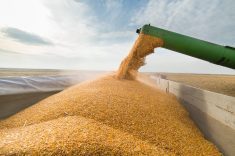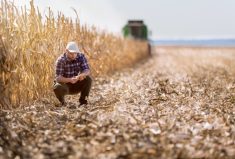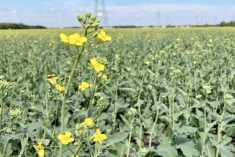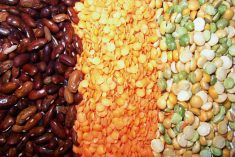Saturday, Oct. 16 is World Food Day, the annual event sponsored by the Food and Agriculture Organization of the United Nations to mark the day on which the FAO was founded in 1945.
The objectives of World Food Day are to encourage attention to the world’s attention to agriculture and world hunger, and to encourage participation of rural people, particularly women and the least privileged categories, in decisions and activities influencing their living conditions.
While it has been a difficult year for farmers in Western Canada this year, World Food Day serves to remind that the difficulties pale in comparison to those faced by farmers who depend on agriculture not just for their income, but for food to feed their families and communities.
Read Also

Senft to step down as CEO of Seeds Canada
Barry Senft, the founding CEO of the five-year-old Seeds Canada organization is stepping down as of January 2026.
Farm Radio International is a Canadian organization that helps African farmers by delivering extension information through more than 330 farm broadcasters. FRI this week has assembled four perspectives on World Food Day, from farmers in Africa.
—————-
Rwanda — It is a Thursday morning with bright sunshine and a fresh breeze. Potatoes are heaped on freshly dug land. A farmer inspects them one by one and places them in a bag. Theoneste Havugimana is harvesting his last potatoes of the year.
“I do not remember well the date of World Food Day,” he says. “However, what I know is that it aims at improving farmers’ life. Unfortunately, we have faced many challenges of climate change this season and I think it will not be easy for us to celebrate.”
Mr. Havugimana is a potato farmer in Cyuve sector, in the Northern Province of Rwanda. He is married with three children. The weather has not been good for farmers this season.
He says, “I would have harvested four tonnes, but now I have two and half only because we did not have enough rain.”
Although Mr. Havugimana is concerned about climate change, he is happy about World Food Day. He is pleased that the world remembers the work that farmers do. “This is the day of farmers and the world will be recognizing our work,” he says.
Muragijimana Felicite is a farmer in Nyange sector in the Northern Province. She thinks this day should be celebrated by communities visiting one another. Each community could offer some of their crops. It would be a great chance for communities to exchange ideas and discuss the farming season.
She believes that farmers should be represented in World Food Day ceremonies. They could talk about climate change and how communities adapt to it. “The weather has changed so much,” she says. “Farmers… should address the challenges.”
She suggests techniques to adapt to climate change, such as water harvesting and soil conservation. Meanwhile, she will celebrate the day at home eating good food with her children.



















